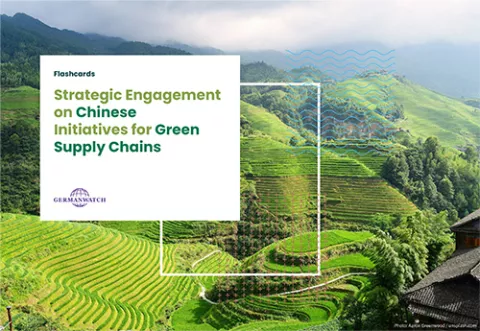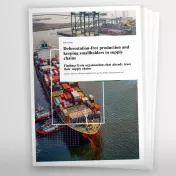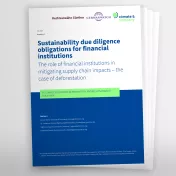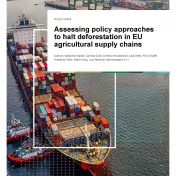
With the risk of deforestation being a key concern to meet climate goals, the EU pursues deforestation-free supply chains through legislation. The EU Timber regulations (EUTR) has been in place for more than ten years, and the EU Deforestation Regulation (EUDR) will come into force at the end of 2024. Relevant commodities and products such as beef, leather, soybeans, and oil, etc. can only be placed on the EU market if they are deforestation-free and comply with the local laws of the country of production. These put EU standards beyond its jurisdiction; China, as one of the largest players in the international market for soft commodities, has close trade links to the EU market and producing countries such as Brazil.
Global growth in demand for soft commodities will drive deforestation, turning the ecosystem from a carbon sink to a carbon source. China plays a crucial role in greening the global supply chain. What has China done in recent years, and what are the gaps to be filled?
This interactive resource focuses on China's recent international commitments and domestic approaches to mitigate the environmental and social threats associated with global deforestation from different actors. It also provides key recommendations on how to strengthen the systematic approach to curate further dialogue and co-operation with stakeholders, in particular highlighting the key role of government ministries and industrial actors involved in greening the global supply chain. Ultimately, we encourage China to advance its commitment and policies to reduce global deforestation through supply chains.





